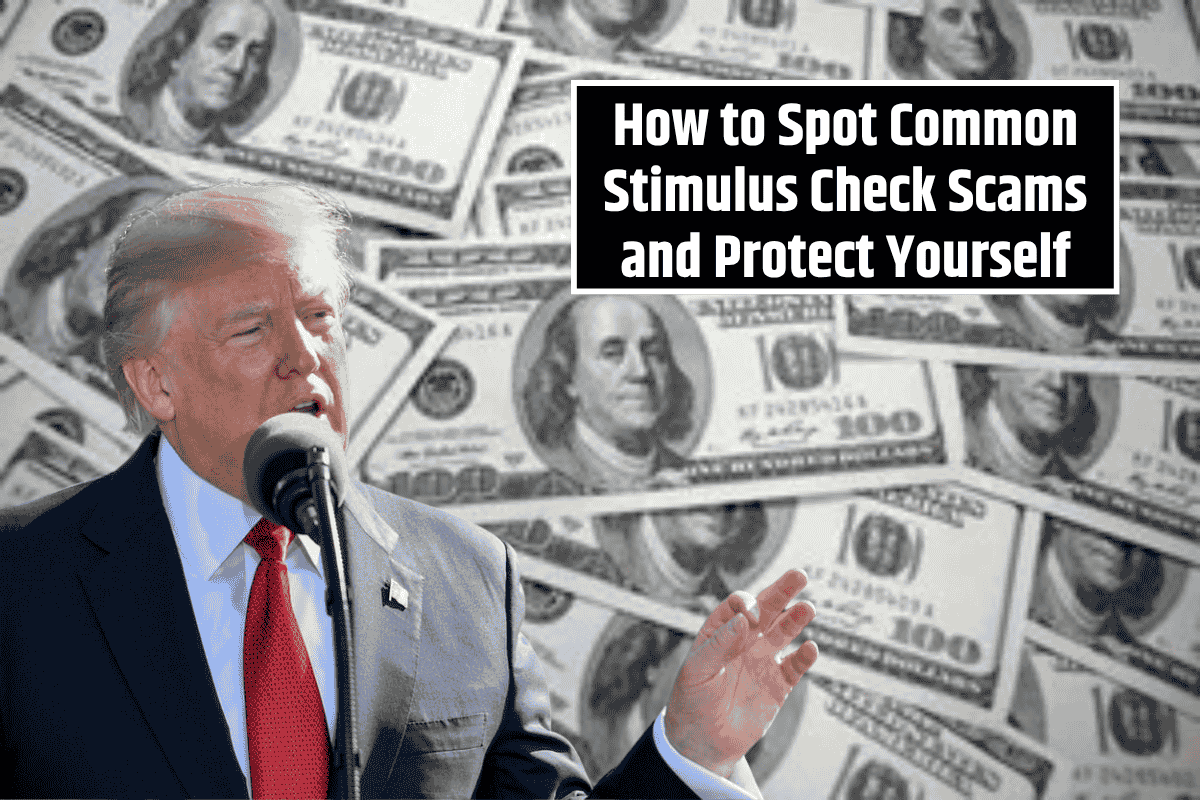Government programs offering stimulus checks have provided critical financial relief to millions of Americans, especially in the face of rising inflation. However, the demand for these benefits has also led to a rise in scams targeting unsuspecting individuals.
While the official information for government programs is available on trusted websites, many people remain unaware of how these programs work, making them vulnerable to fraud. Here’s how to protect yourself from the most common scams related to stimulus checks.
Common Stimulus Check Scams and How to Spot Them
1. Fake Checks: Don’t Return Money
One of the most widespread scams involves receiving a stimulus check, only to be contacted later by a scammer who asks you to “return” a portion of the money.
The scammer will claim that the check was issued in error or that it was a mistake. The check will bounce, meaning it won’t have any funds in it. Once you return the money, the scammer vanishes, leaving you out of pocket.
How to spot this scam:
The government will never ask you to return money after a check has been issued.
Always verify the legitimacy of any check directly with the IRS or the relevant government agency.
2. Fake IRS Calls: No Personal Data Requests
Phone scams are unfortunately common, especially when it comes to tax season or stimulus payments. Scammers will impersonate IRS agents, claiming that you are eligible for a check and asking for personal information to process your claim. In some cases, they might even threaten legal action if you don’t comply.
How to spot this scam:
The IRS will never contact you by phone to offer money or request personal details over the phone.
If you receive such a call, hang up immediately and verify through official IRS channels.
3. Social Media Scams: No Official Contact Via Social Networks
Scammers often take advantage of social media platforms to trick people into clicking on fake links or providing personal information. They may create fake pages, or even contact you directly, offering a link to check the status of your stimulus payment or asking you to provide your personal information to “verify” your eligibility.
How to spot this scam:
The government will never contact you about stimulus payments through social media.
Do not click on links or share personal information from unsolicited messages on social platforms.
4. Preselection Scams: Don’t Trust the “Pre-Selected” Offers
Another common scam involves contacting individuals via email, phone, or text, claiming that they have been “pre-selected” for a stimulus payment. The scammer will ask the person to open a link to “confirm” their eligibility or claim their payment. This is a trick to steal your personal data.
How to spot this scam:
There is no preselection for stimulus payments; if you’re eligible, you will be contacted directly through official government channels.
Never open links or provide personal information from unsolicited messages or calls.
How to Protect Yourself from Stimulus Check Scams
Verify through official sources: Always double-check the authenticity of any stimulus-related communication through official websites like the IRS or the U.S. Department of the Treasury.
Do not share personal information: Be wary of sharing any personal details, including your Social Security number, bank account details, or credit card numbers, unless you are sure of the legitimacy of the request.
Be cautious of unsolicited offers: Whether through email, phone calls, or social media, if you did not request the communication, it’s likely a scam.
Report suspicious activity: If you believe you’ve been targeted by a scam, report it to the Federal Trade Commission (FTC) and the IRS.
While stimulus payments provide essential financial relief, they’ve also become a target for scammers looking to exploit vulnerable individuals. By staying informed and aware of these common scams, you can avoid falling victim to fraud.
Always verify information through official government channels and be cautious when sharing personal information. Remember, if something seems too good to be true, it probably is.
